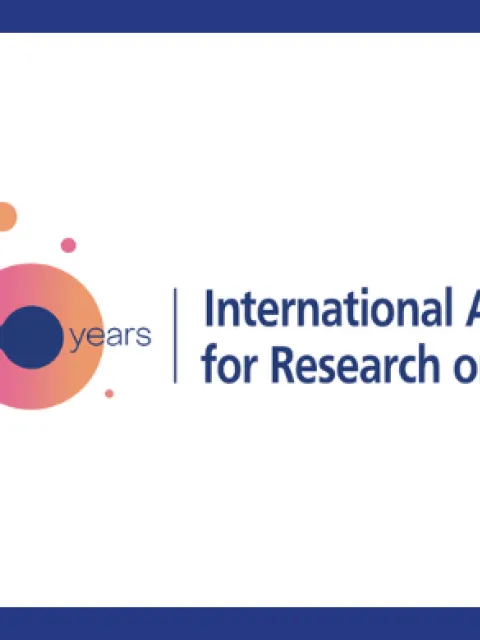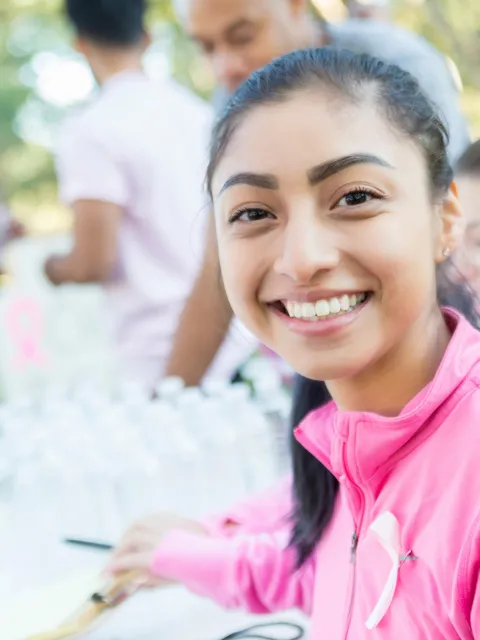UICC supports cancer research through its Fellowship Programme
Research on the causes, prevention and early detection of cancer is a key element in controlling the disease. This World Cancer Research day, UICC highlights the importance of collaboration.

For over half a century, UICC has been offering international fellowships to cancer researchers around the world. The Fellowships Programme is a core activity of UICC and plays a major role in UICC’s mission and vision to build capacity and contribute to the professional development of cancer investigators, clinicians, nurses, cancer society staff, and volunteers, with a focus on low- and middle-income countries.
The fellowships provide an opportunity to visit, collaborate, and learn from other cancer professionals. So far in 2019, UICC has supported 20 outstanding cancer researchers through the UICC Technical Fellowship programme which includes a one-month collaborative research visit.
"These days cancer research is making amazing progress and I am glad to chair the research arm of the UICC fellowship programmes that gives researchers from around the world the chance to learn new skills and form long-lasting collaborations” - Professor Nicol Keith, Institute of Cancer Sciences, University of Glasgow, UK, research chair of the Technical Fellowship and YY study grant programmes.
Translational cancer research fellowships: 3D cancer organoids
Four Technical Fellows this year have conducted translational cancer research projects on cancer organoids in world-renowned laboratories. Translational cancer research, also known as ‘bench-to-bedside’ research, leverages basic scientific research and discoveries to develop new diagnostics or treatments for cancer patients. Instead of growing cancer cells from patients in a flat layer in a petri dish, 3D organoids or spheroids more closely mimic the human body’s physiological conditions and can be used to identify prognostic markers and develop novel personalised treatment regimens.
Dr Eudoxia Hatzivassiliou from Thessaloniki, Greece visited the Hubrecht Institute in the Netherlands to investigate the role of a tumour suppressor in human breast cancer organoids, while Dr Anindita Dutta from India and Dr Aymone Gurtner from Italy went to laboratories at the University of Manchester and the Institute of Cancer Research in the United Kingdom respectively to learn how to set up cancer patient-derived organoids. Dr Filippo Piccinini, from Italy, developed a new software platform in collaboration with his host institution the Biological Research Centre of the Hungarian Academy of Sciences to analyse single cells within organoids.
Public health research fellowships at the International Agency for Research on Cancer
Four cancer researchers focusing on public health will visit the International Agency for Research on Cancer (IARC) in Lyon, France this year to conduct fellowships on cancer epidemiology and data.
Dr Srabani Mittal* from India was awarded a fellowship to prepare an online digital atlas and image library in order to develop artificial intelligence in visual detection of cervical abnormalities. Dr Chantal Matar from Canada investigated links between the gut microbiome and breast cancer, Dr Yubei Huang from China will study links between cancer screening beliefs, knowledge, mental health and behaviour and Dr Razinah Sharif from Malaysia studied metabolomics profiling and cancer mediators for colorectal cancer survivors in Malaysia.
Longer-term cancer research fellowships: YY study grants
The Yamagiwa Yoshida (YY) study grant fellowship programme allows cancer researchers who are two years post PhD to visit collaborating scientists for up to three months allowing sufficient time for research projects to be concluded.
Dr Giulia Antoniali from Italy was awarded a YY study grant to travel to the Erasmus University Medical Centre in the Netherlands in May 2019 for a project on improving the efficacy of chemotherapy by looking at the role the APE1 gene plays in drug resistance.
Dr Giulia Antonli said, “All findings and expertise I obtained during my stay in the host laboratory will significantly contribute to boosting current translational approaches for cancer combination therapy that rely on APE targeting.”
Looking ahead:
The YY study grant call is currently open until 31st October 2019, while the calls for the UICC Technical fellowships and Bourses pour l’Afrique Francophone remain open until the end of the year.
For more information and to apply, visit here.
For further information on World Cancer Research Day and to sign the World Declaration for Cancer Research, visit here.
Image: Single slice of a 3D cancer spheroid, stained for nuclei and actin filaments, imaged with the light-sheet microscope. Courtesy of: Prof. Peter Horvath, BRC, Szeged, Hungary *Dr Srabani Mittal sadly passed away recently. UICC offers its condolences to her family.Last update
Thursday 20 August 2020
